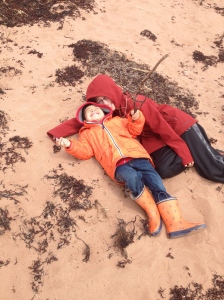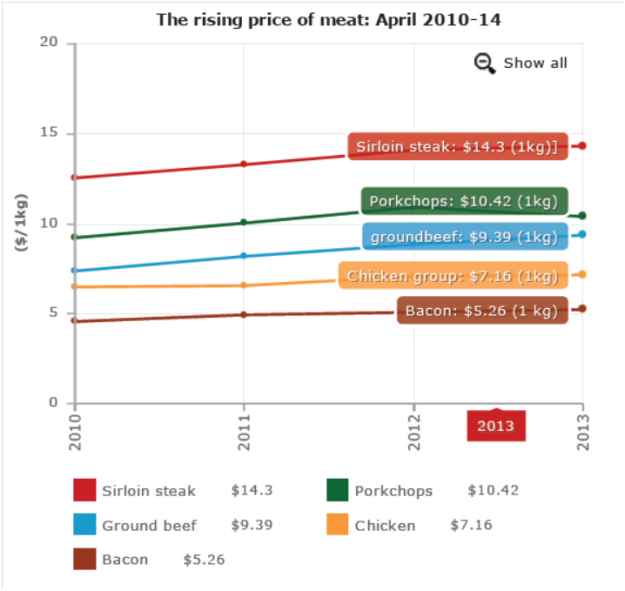As Frank Zappa said, “It’s a great time to be alive, ladies and gentlemen.” Despite the gloom and doom of the current economic and environmental concerns, we are fortunate to be Canadians living in relative prosperity. But despite improved access to health care, improved safety, and reduced crime, North Americans would appear to be more stressed now than ever before.
Helicopter Parents
Maybe despite our relative wealth and welfare, we don’t share the same optimism about the future as our parents’ generation did when they were our age. Parents in our generation have come to be known as “helicopter parents,” because we are often seen hovering over our kids as they complete tasks, eliminating or mitigating potential risks for our children. Our over-protectiveness has extended beyond our homes and into our communities and schools: even at the university level, we have parents coming in to speak on behalf of their adult sons or daughters. This is also occurring in the workforce, as discussed in a recent article from global news, where parents are weighing in with employers to defend their “kids.”
We need to be better at detaching
Statistically speaking, our children have never been safer, but with all this added protection, I wonder if we are sometimes doing a disservice to our children and not providing them with sufficient real-world risk-taking that they can learn and grow from. I have to admit that sometimes I feel like Nemo’s father, Marlin, from “Finding Nemo” – always watching what my kids are doing, always protecting, always hovering. As much as “being in the moment” with your children is a very healthy mindful experience, we also need to be better at detaching. We need to let our children “fail” and “fall” now and then, and have confidence and trust that our children will learn from these experiences and triumph over their challenges (a lesson well learned by Marlin, Nemo’s dad).
Our hovering tendencies have had a substantial impact on our schools and playgrounds. We now live in an era where even “tag” is considered too risky for children to play on the playgrounds of most Island schools. At the beginning of this school year, our 12 years old son came home one day and was visibly depressed. We asked him what was wrong, and he told us that he was upset that they could no longer play “tag” or “manhunt” at school, as well as other “hands-on” games. We were surprised, because it was not obvious to us how a game like tag could be problematic. The argument was that kids were getting hurt and, in particular, that such activities put younger children (especially kindergarten-age children) at risk. When following up on this issue, we were told that such “hands-off” practices have been in operation for “some time” and part of the school board policy in our province (Prince Edward Island, Canada). Further checking revealed that in fact it wasn’t a school board policy, but “schools were well within their rights to ban such games.” Now, we were not questioning the safety of kids at school, especially younger kids. But how frequently do kids actually get hurt playing such games and could not alternative measures be put in place to mitigate potential accidents to smaller kids (having different recess times, for example)? How can we be worried about games like tag, but yet still sign our kids up for contact sports like hockey, rugby, lacrosse, soccer and basketball?

Risk is an important component of child development
Internationally, there is a growing reconsideration of the kinds of playgrounds where unstructured active games like tag have been eliminated in the way they have here on Prince Edward Island. There is also a growing awareness of the need to address the “increasingly sedentary and risk-averse generation of children…,” according to the International School Grounds Alliance (ISGA). How can children learn to gauge themselves if every “natural” and unstructured active play opportunity is over-regulated or eliminated? According to Stephen Smith (Associate professor in phenomenology and physical education at Simon Fraser University), “risk is an important component of development in children. It is through the taking of risks that children learn to be competent, to overcome fear, to work with others, and to measure their own capabilities.”
Sometimes of course, children are going to get hurt playing tag, as “tags” can very quickly turn into “shoves” when an intense playground game gets going. Some parents and educators might worry that this kind of experience might have a lasting impact on a child, psychologically and physically. But, in fact, studies have shown that the opposite is true. When for example, a child is hurt in a fall before the age of nine, that child is actually less likely to develop a fear of heights as a teenager. There is a growing body of research that points to the physical, emotional and psychological value of a bit of physical risk when it comes to child development. Researchers and parents claim that managing the risks inherent in a game of “tag,” for example, can help children with problem solving and conflict management. Unstructured games on the playground, if properly supervised, can teach children about leadership, negotiating and of course they get kids running and building their physical strength.
Like most of us, I am trying to do my best as a parent (without the owner’s manual) and really just asking the basic questions: what are we doing? Why are we doing this? If I could obtain balanced, well-defended/supported arguments, then I may be convinced as to some of our recently adopted policies/practices; however, I think that we are really just being over-protective, over-reactive and, to a certain extent, paranoid. The question is: what longterm impact could this behaviour have on our children?
This is an article that my husband, Sheldon Opps, wrote for a local family magazine. Sheldon is an Associate Professor in the Department of Physics at the University of Prince Edward Island.
 Children present a variety of challenges depending on their age, temperament, developmental level, learning style and cognitive abilities among other things. As in any other relationship, parents themselves also affect the parent-child relationship. Adults can find parenting especially challenging when they are stressed at work, when they are dealing with separation or divorce, or when a child or adult in the family suffers from a mental or physical illness.
Children present a variety of challenges depending on their age, temperament, developmental level, learning style and cognitive abilities among other things. As in any other relationship, parents themselves also affect the parent-child relationship. Adults can find parenting especially challenging when they are stressed at work, when they are dealing with separation or divorce, or when a child or adult in the family suffers from a mental or physical illness.







